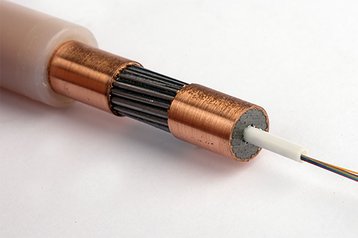Spanish and Brazilian government officials have confirmed that a proposed fiber optic submarine cable between the two countries has been given the go-ahead
The 9,200 km-long (5,700 mile) EllaLink, previously known as EulaLink, will connect to data centers in Madrid, Lisbon and São Paulo, as well as connecting to Fortazela, the archipelagoes of Madeira, Spain’s Canary Islands and Africa’s Cape Verde. A 72Tbps cable, it will be the first between fiber optic submarine cable between Europe and Brazil, with the only existing direct link being a 20Gb copper cable laid in 1999.
Continental shift
EllaLink, a partnership between Spanish submarine cable operator IslaLink and Brazilian telecoms provider Telebras, will be operator neutral. Alcatel Submarine Networks will be responsible for the project.
The European Commission provided €25 million ($27.2m) in financial support for the cable, as part of its Building Europe Link to Latin America (BELLA) initiative. Current cost estimates were not provided, but when a version of EllaLink was announced by then-Brazilian President Dilma Rousseff in 2014, it was pegged at $185 million.
At an announcement ceremony in São Paulo this week, Spain’s Prime Minister Mariano Rajoya said that the cable “will reduce the time to transmit data between the two continents by 40 percent and will also help us to improve quality, reliability and confidentiality.”
Confidentiality was previously touted as a key reason for the cable, with communications between Brazil and the EU currently routed through North America, despite the fact that the Iberian peninsula is roughly 60 kilometers (37mi) closer to Fortaleza than to Miami.
The question of United States’ dominance in matters of Atlantic Ocean submarine cable affairs came to the fore in 2013, after a series of damaging revelations by whistleblower Edward Snowden, a former NSA contractor, brought to light the extent of the agency’s surveillance operations.
Rousseff, who in 2013 postponed a state visit to Washington after it was revealed the NSA spied on her email account and phone records, said in 2014 when announcing the cable: “We have to respect privacy, human rights and the sovereignty of nations. We don’t want businesses to be spied upon.”
She continued: “The Internet is one of the best things man has ever invented. So we agreed for the need to guarantee … the neutrality of the network, a democratic area where we can protect freedom of expression.”

